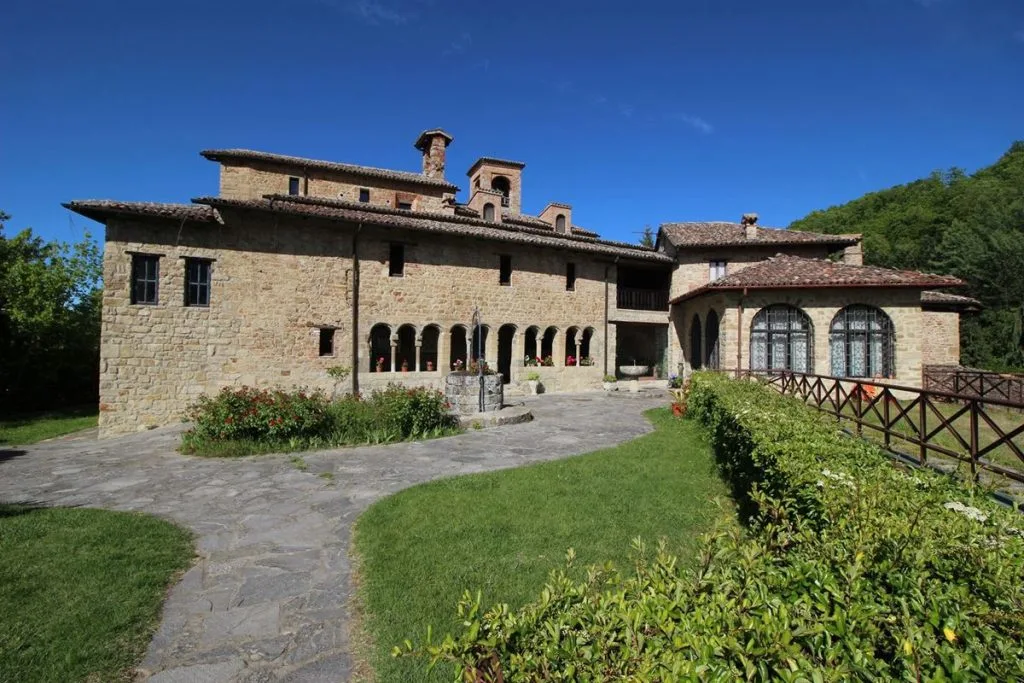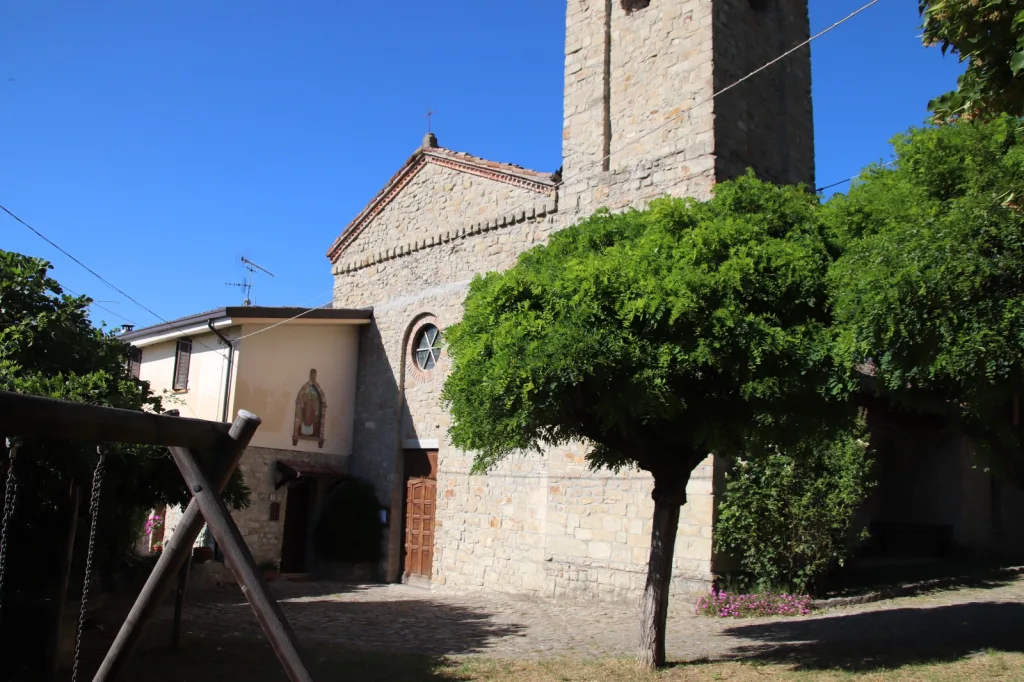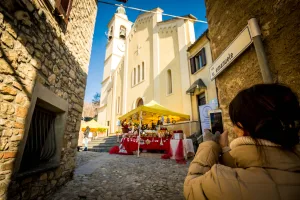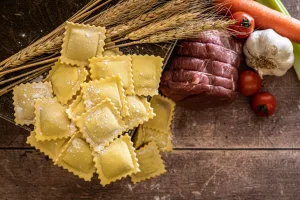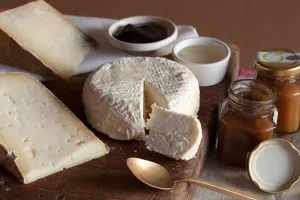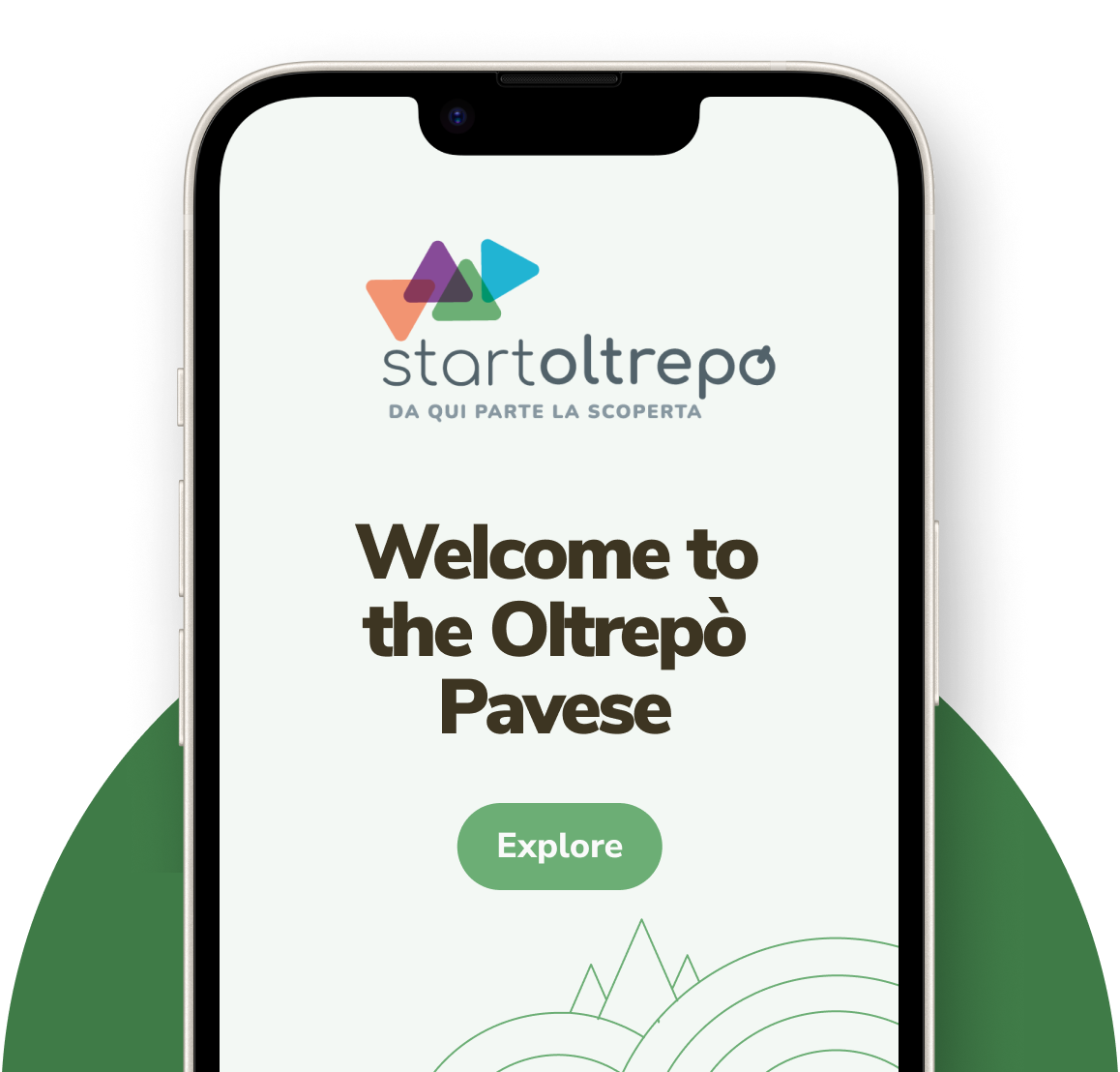Surrounded by lush hills and breathtaking scenery, the charming village of Pizzocorno in Ponte Nizzais an ancient settlement steeped in history and the beauty of its natural surroundings. There are the remains of a castle, the Barbarossa Trail and the famous Pizzocorno cheese.
A compelling history
The village of Pizzocorno has a rich and fascinating history dating back to the Middle Ages. Named because it overlooks a "pizzo", or hill, it was a fief of the Malaspina family, who had a castle, villa and court here. In 1158 the village was sold to the Abbot of Sant'Alberto di Butrio, Guglielmo, who took the name of Count of Pizzocorno. In 1449 the castle, the villa and the farm were sold to Count Luigi Del Verme, who did not have time to enjoy them, dying in the same year. The properties passed briefly to the Eustachi family, before returning to the Malaspina family, who kept them until the arrival of Napoleon.
The castle was built as a defensive outpost to dominate the surrounding area: its remains are a fascinating testimony to the glorious past of this land.
Exploring the castle ruins
All that remains of the ancient castle are scattered ruins: a few not too high slab walls and a circular foundation wall, perhaps the remains of a tower. But even though few traces remain, the atmosphere of an important past can still be felt.
The Barbarossa Trail
The remains of the castle can be reached by a path called "del Barbarossa". The name of the path refers to the tradition that the Emperor Frederick Barbarossa passed through these lands during one of his military campaigns. It is a path that immerses you in the tranquillity and wonder of the natural environment that surrounds the village.
The flavour of Pizzocorno cheese
A local delicacy is Pizzocorno cheese, a local dairy treasure and one of the culinary delights of the Oltrepò Pavese. This semi-hard, square-shaped cheese is produced according to ancient traditions, using the finest milk from cows reared in the surrounding areas. The result is a cheese with an intense, enveloping flavour and a soft, creamy texture that melts in the mouth. It is obtained by processing whole, raw milk from two milkings, one in the morning and one in the evening. The cheese is placed in square moulds and dry salted.
The unique flavours of Pizzocorno are the result of meticulous craftsmanship and a forty-day maturing process, which gives the cheese a complexity of aromas and a touch of authenticity. Tasting Pizzocorno is like a journey through the flavours and gastronomic traditions of this area.
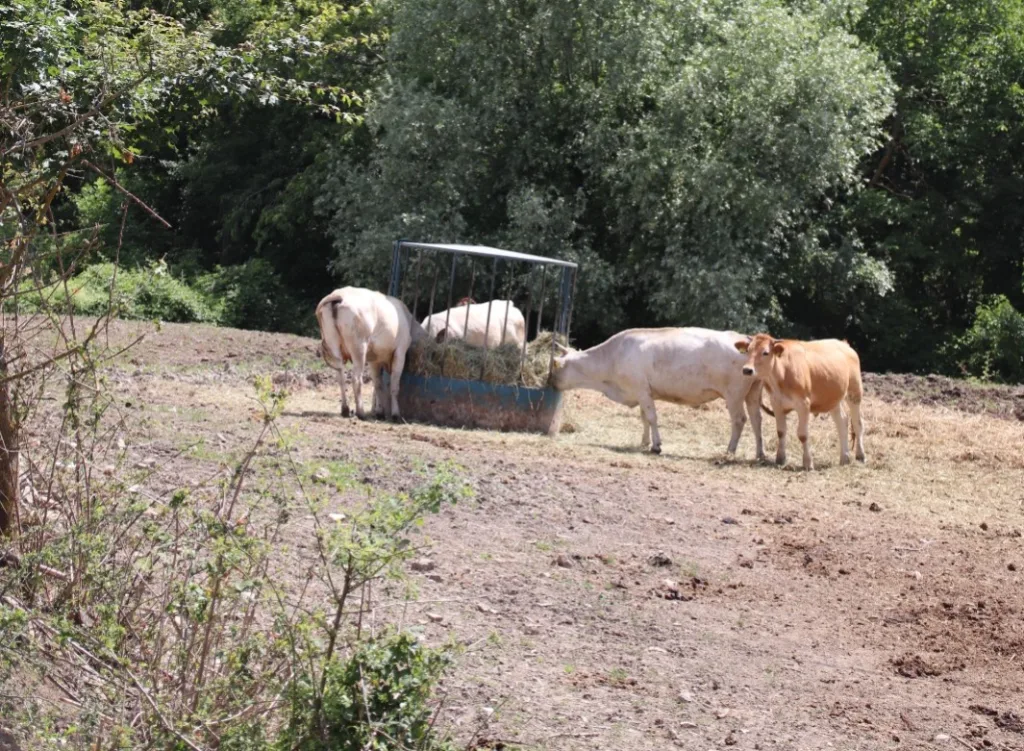
From Pizzocorno to Sant'Alberto di Butrio
missed in the municipality of Ponte Nizza: the ancient parish church of San Ponzo, dating back to the year 1000, and the hermitage of Sant'Alberto di Butrio. Two places of art, history and spirituality that will leave you speechless. Surrounded by nature, the hermitage is characterised by its simple and austere architecture, which blends in harmoniously with its surroundings. Since St Albert retired to this place in search of solitude and contemplation, the abbey has been a point of reference for people seeking spirituality and silence. A break from everyday life.
